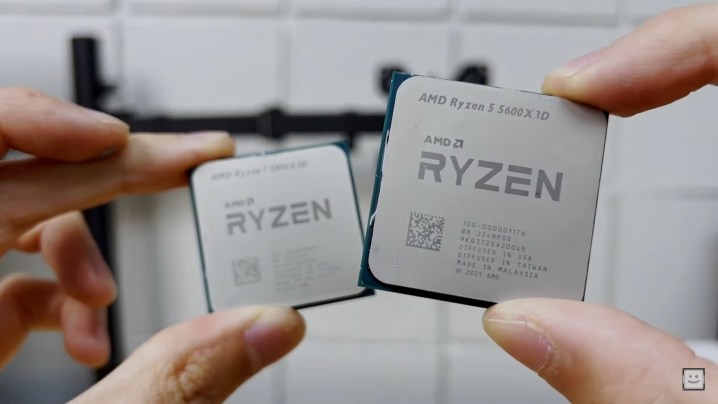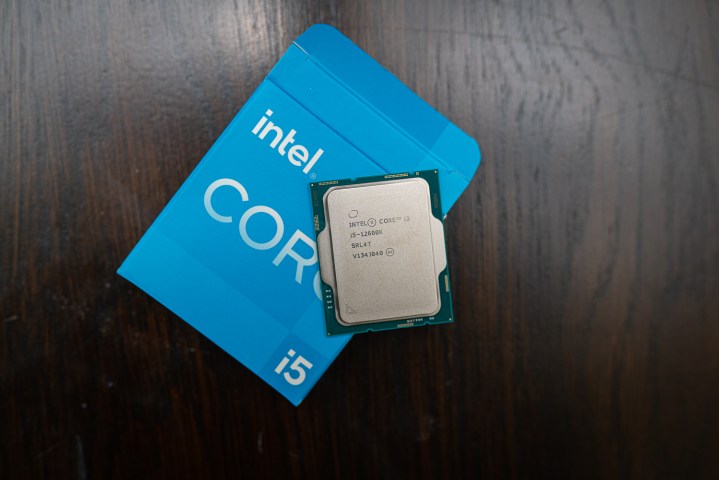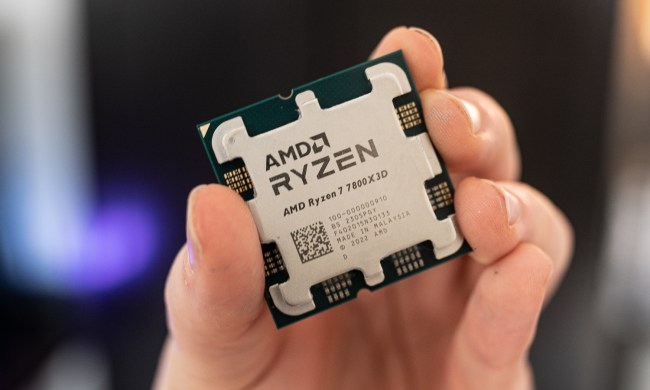AMD’s Ryzen 7 5800X3D is the crown jewel of gaming CPUs. It’s the processor to buy in 2024 if you want a peak gaming experience, and with the processor still readily available for around $300, it’s a great buy. However, it’s not the gaming CPU for everyone. Despite the Ryzen 7 5800X3D’s mythic status, there are several great alternatives.
We review the latest CPUs from Intel and AMD, testing their gaming prowess in the latest games, and there are some Ryzen 7 5800X3D alternatives that are cheaper, offer higher performance, or set you up better for future upgrades. Here are a few other CPUs to keep on your shortlist when you go to upgrade your PC.
AMD Ryzen 7 7800X3D

The most obvious alternative is the Ryzen 7 7800X3D. It’s the new version of the Ryzen 7 5800X3D, and unsurprisingly, it’s a decent clip faster. Based on our gaming tests, it’s around 20% faster in games than the Ryzen 7 5800X3D and around 25% faster in multi-core productivity performance. It’s a huge leap forward, and the Ryzen 7 7800X3D isn’t much more expensive.
Right now, you can pick up the CPU for around $400. That’s a lot of money to drop on a CPU, sure, but the Ryzen 7 7800X3D is the fastest gaming CPU you can buy right now. It’s even faster than AMD’s flagship Ryzen 9 7950X3D. There are faster CPUs if you need better productivity performance, but the Ryzen 7 7800X3D is unmatched on the gaming front.
The big reason to spend up on it, however, is future compatibility. AMD has said it will support the AMD socket that the Ryzen 7 7800X3D uses (AM5) beyond 2025. That sets you up for at least one CPU upgrade in the future, and maybe even two. The Ryzen 7 5800X3D, on the other hand, is the peak you’re getting on AMD’s last-gen platform.
There are a few key considerations here, though. For starters, the Ryzen 7 5800X3D slots into a platform that’s been around since 2017 — if you already have a compatible motherboard, that vastly lowers the upgrade cost. In addition, the Ryzen 7 7800X3D requires a new motherboard and costly DDR5 memory. This CPU makes the most sense if you’re coming from an Intel platform or something much older, rather than a previous Ryzen CPU.
Intel Core i5-13600KF

The Core i5-13600KF is your best alternative to the Ryzen 7 5800X3D if you want to go to an Intel platform. Intel’s midrange chip offers largely similar performance to the Ryzen 7 5800X3D in games, and it punches above its weight in productivity applications. Based on our testing, it’s 65% faster in multi-core performance and 37% faster in single-core performance, and it was able to complete a transcode in Handbrake around 29% faster.
It’s the faster CPU overall, even if the two processors trade blows in gaming. I’m recommending it here because it’s around $50 cheaper than the Ryzen 7 5800X3D. These two processors are normally around the same price these days, but Intel sells multiple variants of its processors, usually at a lower price. The Core i5-13600KF is one of those cases.
The “F” suffix notes that it doesn’t include integrated graphics, which saves you about $30 compared to the regular Core i5-13600K. That’s the only difference and not one that’s particularly relevant against the Ryzen 7 5800X3D (AMD’s chip doesn’t have any integrated graphics).
Unlike the Ryzen 7 7800X3D, you don’t need to drop a ton of money on an upgrade with the Core i5-13600KF. Intel offers both DDR4 and DDR5 motherboards for the CPU, so you can bring over your old memory instead of dropping cash on a new kit of DDR5. In addition, you can squeeze even more performance out of the Core i5-13600KF — it’s unlocked for overclocking, while the Ryzen 7 5800X3D has overclocking locked away in dense BIOS settings.
AMD Ryzen 7 5700X3D

What if I told you that you could buy the Ryzen 7 5800X3D for $240 instead of $300? You’d probably take that deal, and that’s exactly the deal the Ryzen 7 5700X3D is offering to you. It comes with the same eight Zen 3 cores and the massive amount of 3D V-Cache available on the more expensive chip, but it’s just cheaper.
The story behind the Ryzen 7 5700X3D is that AMD had too much silicon for the Ryzen 7 5800X3D, which fell just short of performance standards. So, it repackaged and sold that silicon at a lower price in the Ryzen 7 5700X3D. There’s a 9% clock reduction compared to the more expensive processor, but everything else remains the same.
In games, that translates into only a few frames of difference. You’re getting almost identical performance to the Ryzen 7 5700X3D, just for a lower price. Even better, this CPU benefits from the same upgrade path as the Ryzen 7 5800X3D. You can drop it into an AM4 system if you’ve been sitting on a Ryzen CPU for a few years and carry your RAM over, as well.
Intel Core i5-12600KF

The Intel Core i5-12600KF isn’t as fast as the Ryzen 7 5800X3D, at least in games. In productivity apps, it’s slightly ahead of AMD’s chip, but both parts are fairly slow by modern standards. The big reason to pick up the Intel Core i5-12600KF is that it’s half the price of the Ryzen 7 5800X3D, coming in at only $160.
In games, it’s about 12% slower overall. A 12% speed reduction for a 50% drop in price is a pretty good value on its own, but there are a lot of games where the Core i5-12600KF is just as fast as the Ryzen 7 5800X3D. Titles like Cyberpunk 2077 and Red Dead Redemption 2 that lean heavily on your graphics card show no difference between the two processors.
In CPU-sensitive titles like Hitman 3 and Far Cry 6, the Core i5-12600KF is slower by upwards of 15%, but that usually amounts to less than 10 frames on average. You’re getting a very similar gaming experience, and although there are titles that appreciate the extra cache on the Ryzen 7 5800X3D, there are far more that care very little about your CPU.




